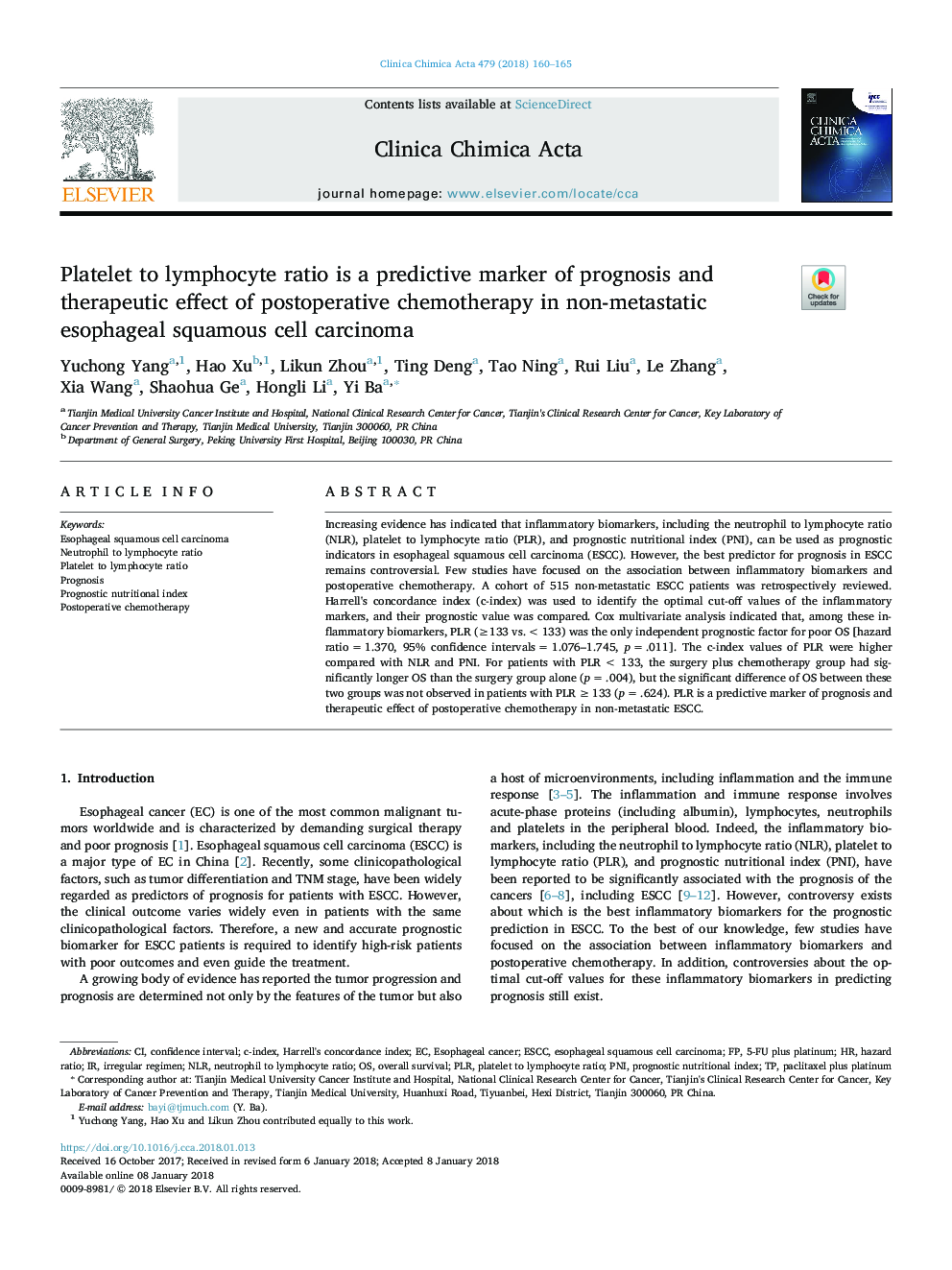| Article ID | Journal | Published Year | Pages | File Type |
|---|---|---|---|---|
| 8309688 | Clinica Chimica Acta | 2018 | 6 Pages |
Abstract
Increasing evidence has indicated that inflammatory biomarkers, including the neutrophil to lymphocyte ratio (NLR), platelet to lymphocyte ratio (PLR), and prognostic nutritional index (PNI), can be used as prognostic indicators in esophageal squamous cell carcinoma (ESCC). However, the best predictor for prognosis in ESCC remains controversial. Few studies have focused on the association between inflammatory biomarkers and postoperative chemotherapy. A cohort of 515 non-metastatic ESCC patients was retrospectively reviewed. Harrell's concordance index (c-index) was used to identify the optimal cut-off values of the inflammatory markers, and their prognostic value was compared. Cox multivariate analysis indicated that, among these inflammatory biomarkers, PLR (â¥133 vs. <133) was the only independent prognostic factor for poor OS [hazard ratioâ¯=â¯1.370, 95% confidence intervalsâ¯=â¯1.076-1.745, pâ¯=â¯.011]. The c-index values of PLR were higher compared with NLR and PNI. For patients with PLRâ¯<â¯133, the surgery plus chemotherapy group had significantly longer OS than the surgery group alone (pâ¯=â¯.004), but the significant difference of OS between these two groups was not observed in patients with PLRâ¯â¥â¯133 (pâ¯=â¯.624). PLR is a predictive marker of prognosis and therapeutic effect of postoperative chemotherapy in non-metastatic ESCC.
Keywords
Related Topics
Life Sciences
Biochemistry, Genetics and Molecular Biology
Biochemistry
Authors
Yuchong Yang, Hao Xu, Likun Zhou, Ting Deng, Tao Ning, Rui Liu, Le Zhang, Xia Wang, Shaohua Ge, Hongli Li, Yi Ba,
